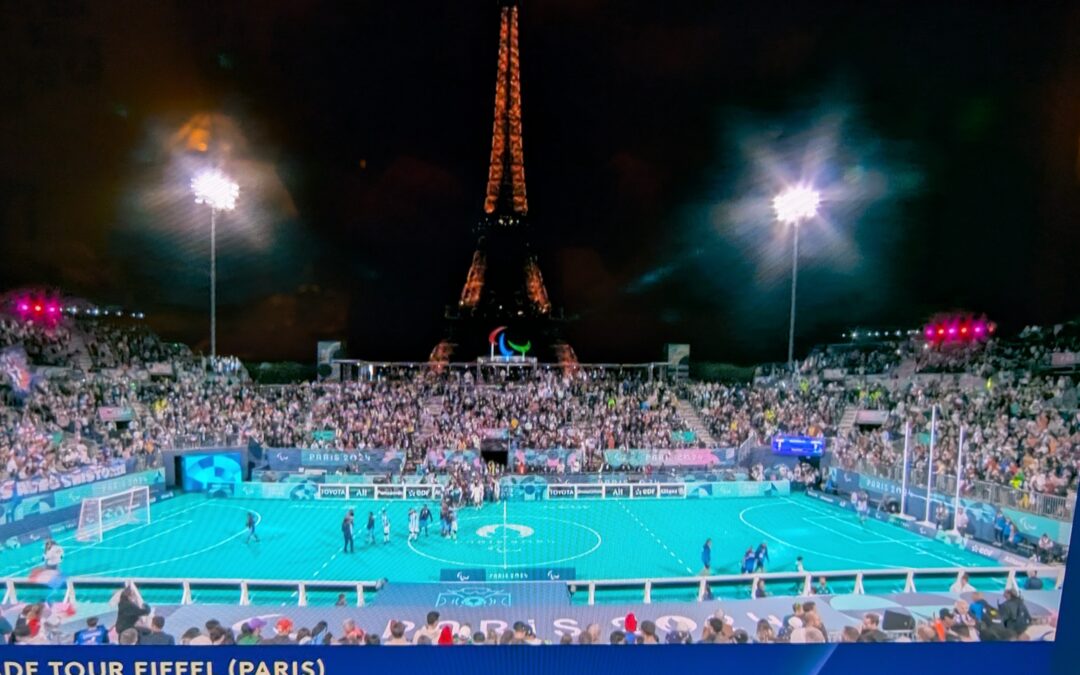I was away from Paris for the Olympics, so I missed the enthusiasm and the excitement of seeing live competitions. On my return, I figured I’d catch a few Paralympic events. This was mostly because I’d been so wrong about the Olympics’ impact on Paris – Crowds! Traffic! Unavailable tickets!– not because I’ve ever been a para fan.
What a game-changer, so to speak.
It wasn’t just the dedication of the athletes or their impressive achievements. It was the courage they showed in launching themselves into space and time in ways no non-disabled person could imagine.
In no sport was this more true than in goalball.
Never heard of it? Neither had I. Invented in 1946 to help visually impaired World War II veterans recover, it’s now played all over the world by both sexes.
Players can have a little seeing ability – but must wear blackout shades in competition to level the playing field. They try to score goals into the opponents’ net by rolling a rubber ball, on a small gym court. The ball has a little bell that jingles when it rolls, and spectators are required to stay silent during play so the players can hear the ball. Incredibly, they often manage to intercept it.
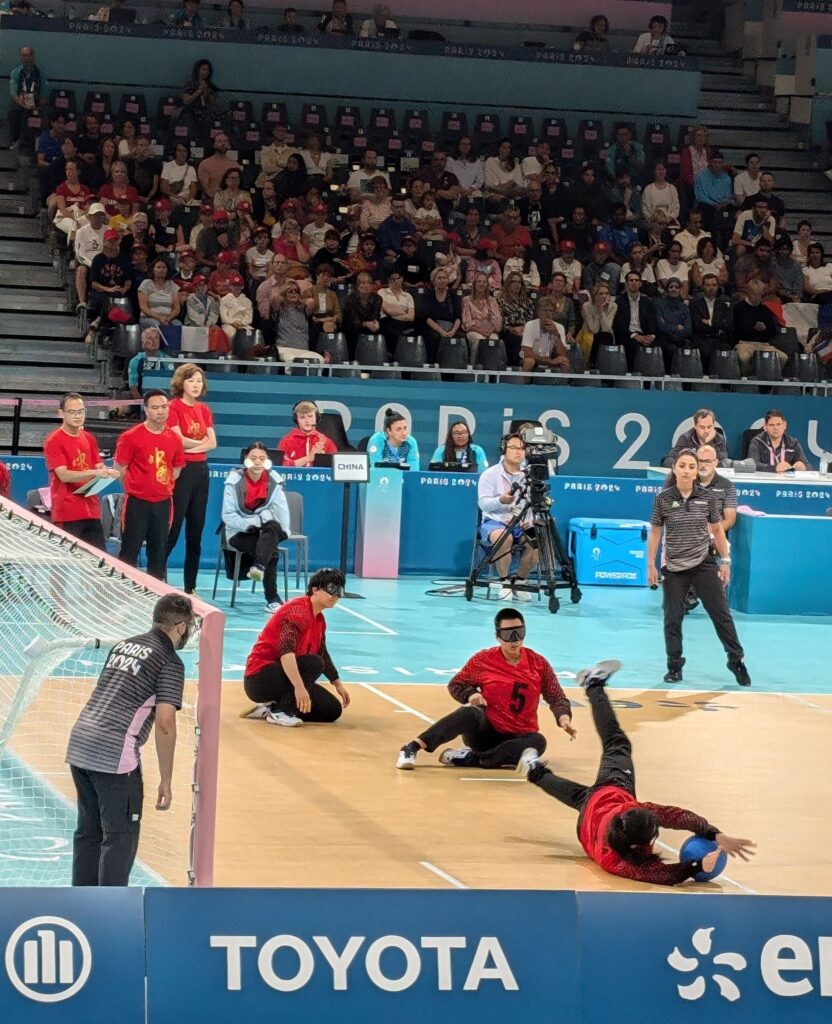
Try this at home: Tie a bandana over your eyes and walk from one room to another. I just did. Even though I live in a small apartment that I know well, I bumped into a door jamb, a closet door, a bookshelf, a chair and the kitchen counter on the 25-foot path from the bedroom to the kitchen.
To watch goalball is to marvel at human adaptability. Players can use the goal bars and some raised lines in the floor for orientation, but they still must launch the ball straight and return to their positions with no help. This video shows how comfortably they move. Note the Chinese player doing a 360-degree spin before releasing the ball.
The match I saw was a quarterfinal match between the French and the Chinese women. The crowds were incredibly enthusiastic and had to be shushed before every play, including the excited Seeing Eye dog.

China whupped France, but spectators cheered the home team anyway.
I did also see men’s and women’s wheelchair tennis – equally remarkable in their own way—
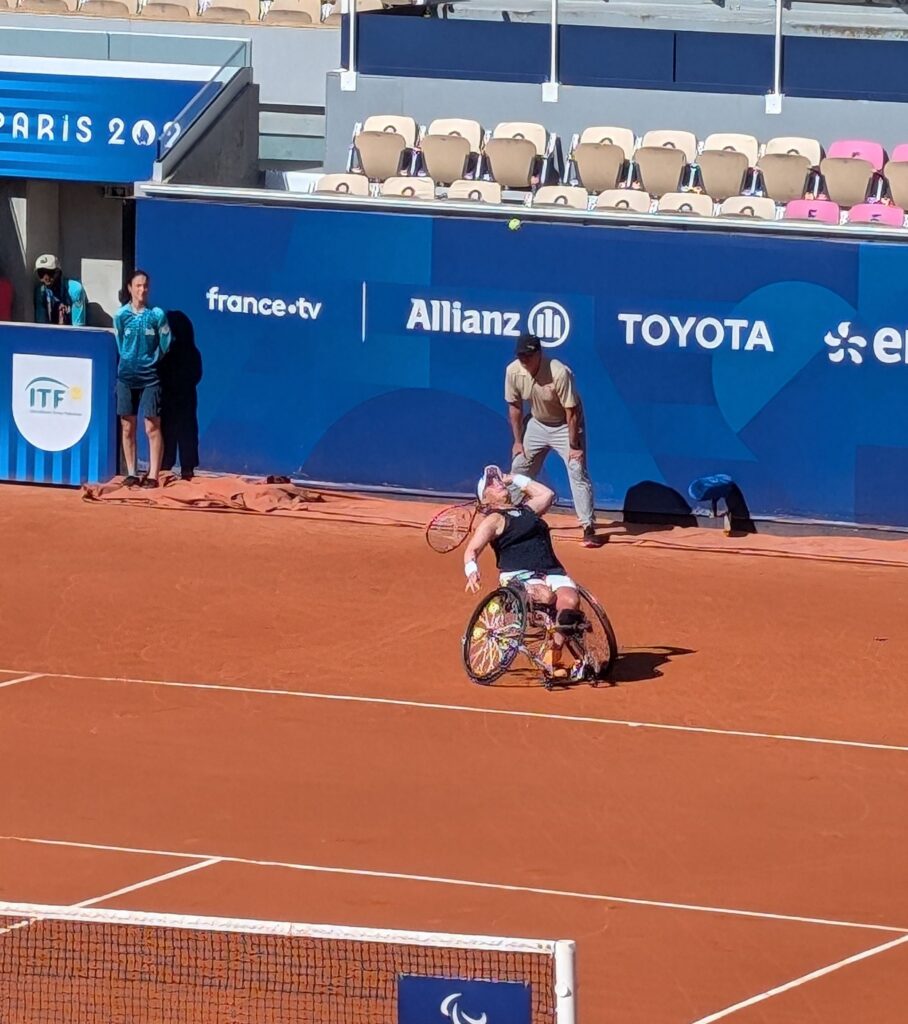
And got a long-distance look at the cauldron that holds the Olympic “flame,” actually a mix of light and water in a huge bowl parked in the Tuileries.

In theory you can sign up on line to get into the garden and watch the balloon and cauldron rise every night, but the free tickets were booked every day I checked.
in the end, by randomly turning on the television, I did get a look at blind soccer, which seems to be louder and faster than goalball. The players are aided by guides at each end, and the goalies can see. But the other players, visually impaired, wear the same kind of blackout masks.
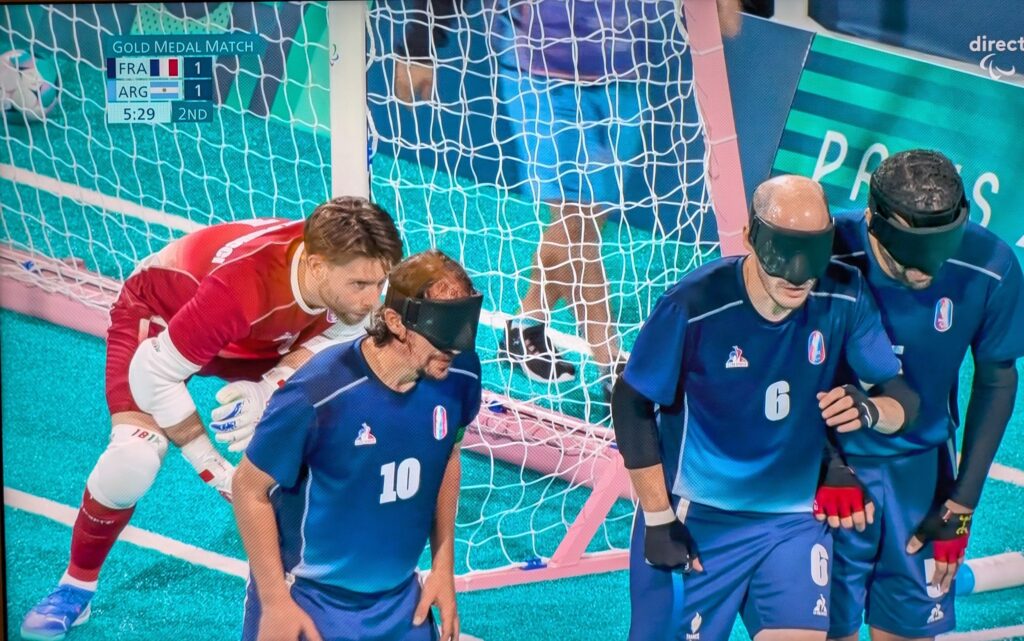
I was fortunate to see France scrape by Argentina on penalty shots to win the gold medal, in front of a frenzied crowd.
I wish I had been able to see more of the events for those with intellectual disabilities, but I did get a little teary watching Gloria Agblemagnon being awarded a silver medal in the women’s shot put. The linked article says she was bullied all during her school years because of her intellectual difficulties.
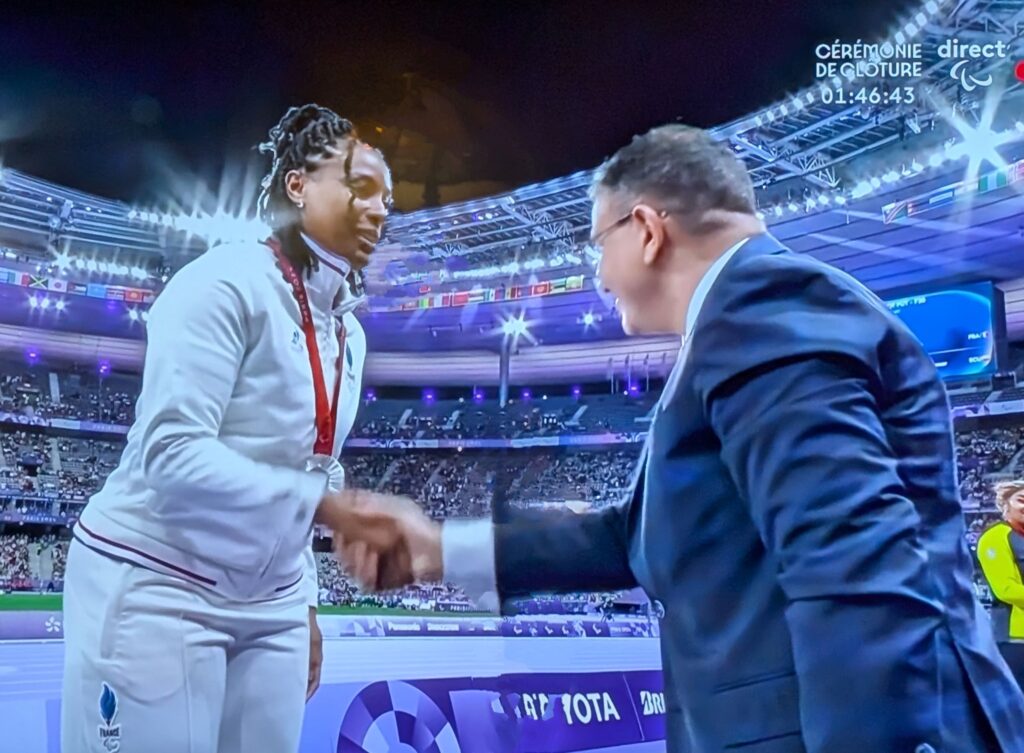
And the nation — I mean France, the nonstop TV coverage was pretty homie — fell in love with Aurélie Aubert, gold medalist for France in boccia. That sport is played by people with fairly severe difficulties, with separate categories for mental and physical. “I realized on the podium, seeing all the people who supported me, how extraordinary this was, “ she said in a TV interview. It was her first Paralympics and she was selected, with archer Tanguy de la Forest, to carry the French flag into the Stade de France for Sunday’s closing ceremony.
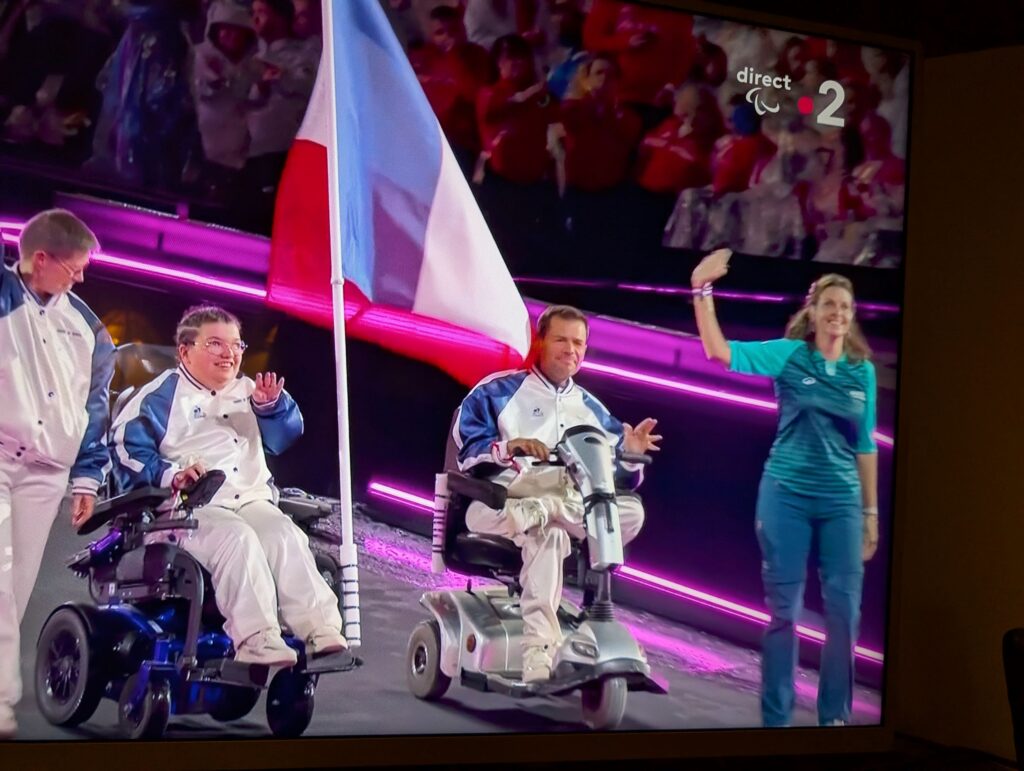
On Sunday morning, I watched the marathon, run on the streets of the city, in four specialties: Men’s wheelchair and women’s wheelchair, and vision-impaired runners of both sexes, some of whom had guides running with them.
In fact, one of the (male) guides gave out and sank to his knees just in front of the finish line. The runner, a Spanish woman, was disqualified from third place for helping him.
https://x.com/francetvsport/status/1832715080451903604
It seemed a low blow for people who gave so much.
